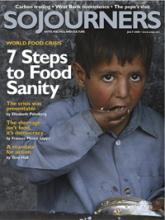Katrina Browne was in seminary when she received a booklet from her grandmother that outlined their family history. It’s a history some part of her knew but had chosen to forget: Her ancestors, the DeWolfs of Bristol, Rhode Island, had not only been involved in the slave trade for three generations (between 1769 and 1820), they were the single largest slave-trading family in U.S. history. One storied ancestor, James DeWolf, was a U.S. senator and the second wealthiest man in the country before he died in 1837. Others were prominent New England industrialists and Episcopal clergy who directly benefited from the wealth and privilege of their slave-trading relatives.
Browne decided to reckon with this history and invited 200 of her relatives to join her. Nine accepted. Browne’s film, Traces of the Trade, which debuts June 24 on PBS, documents the spiritual, physical, and moral journey of these 10 family members as they come to terms with their history, the horrible legacy of the slave trade, and their responsibility for dealing with its effects.
The film follows Browne and her cousins as they retrace their family’s slave-trading triangle, starting at the historical DeWolf mansion in Bristol. They learn that the DeWolf enterprises were horizontally and vertically integrated into the slave trade, with their ships transporting rum, cane, and enslaved Africans. The DeWolfs owned not only ships but also rum distilleries in Bristol, sugar plantations in Cuba, and slave auction facilities in South Carolina. The family members see how profits from African enslavement provided the working capital for the first industrial textile mills and served as a foundation for economic development in New England.
Read the Full Article
